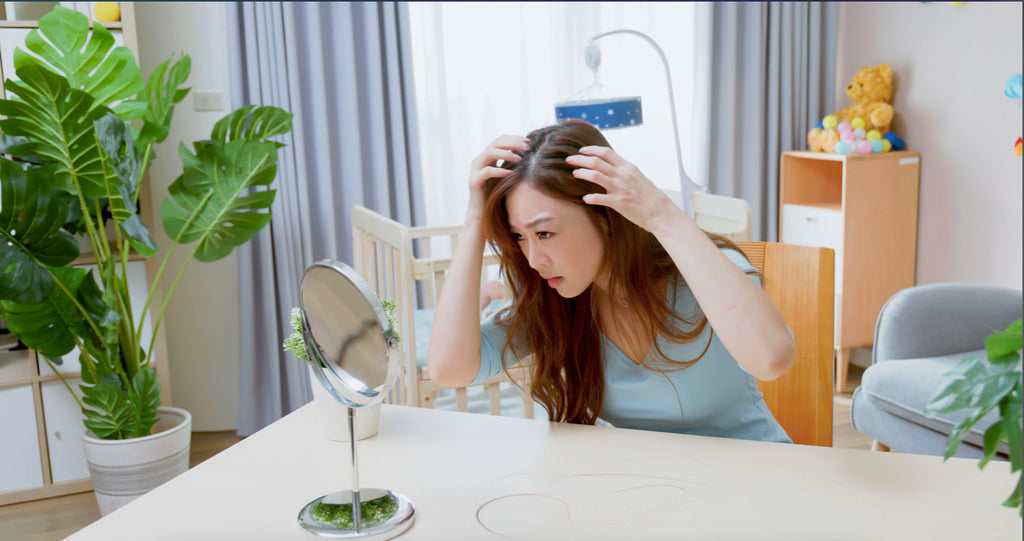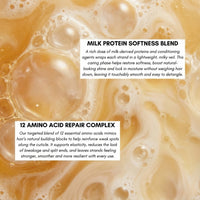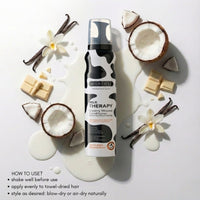Navigating Postpartum Hair Loss: Understanding, Coping, and Remedies
Posted by MORFOSE COSMETICS

Navigating Postpartum Hair Loss: Understanding, Coping, and Remedies
Introduction
Welcoming a new life into the world is a joyous experience, but the postpartum period can also bring about unexpected changes, including hair loss. Postpartum hair loss, medically known as telogen effluvium, is a common condition that many new mothers experience. Understanding the causes, coping strategies, and potential remedies for postpartum hair loss can help women navigate this temporary phase with confidence.Why Postpartum Hair Loss Occurs
Hormonal ChangesThe Hair Growth Cycle
Telogen Effluvium Explained
When Does Postpartum Hair Loss Begin
The Timing of Hair SheddingDuration of the Shedding Phase
Coping with Postpartum Hair Loss
Understanding the Temporary NatureMaintaining a Healthy Lifestyle
Seeking Emotional Support
Hair Care Practices During Postpartum
Choosing Gentle Hair Care ProductsAvoiding Tight Hairstyles
Practicing Scalp Massage
Nutrition and Supplements for Hair Health
Balanced Diet for Hair RegrowthEssential Nutrients for Strong Hair
Consultation with Healthcare Providers
Stress Management and Self-Care
Impact of Stress on Hair HealthIncorporating Relaxation Techniques
Prioritizing Self-Care Activities
Why Postpartum Hair Loss Occurs
Hormonal Changes
During pregnancy, hormonal shifts cause an increased number of hair follicles to remain in the growth phase. After childbirth, hormonal levels change again, causing these follicles to enter the resting phase and eventually shed.The Hair Growth Cycle
Hair grows in a cycle of growth (anagen), transition (catagen), and resting (telogen) phases. Hormonal changes postpartum can lead to a significant number of hairs entering the telogen phase simultaneously.Telogen Effluvium Explained
Telogen effluvium is a type of hair loss characterized by increased shedding due to a disruption in the hair growth cycle. It is a common and reversible condition often triggered by factors such as hormonal changes, stress, and nutritional deficiencies.When Does Postpartum Hair Loss Begin
The Timing of Hair Shedding
Postpartum hair loss typically begins around three to four months after childbirth, as this is when hormonal fluctuations peak. Hair shedding can continue for several months.Duration of the Shedding Phase
While postpartum hair loss can be distressing, it's important to note that it is usually temporary. Hair shedding tends to subside within six to twelve months after childbirth as hormone levels stabilize.
Coping with Postpartum Hair Loss
Understanding the Temporary Nature
Recognizing that postpartum hair loss is a normal and temporary phase can help alleviate anxiety and stress associated with the condition.Maintaining a Healthy Lifestyle
A balanced diet, regular exercise, and adequate sleep can contribute to overall well-being, which in turn supports hair health.Seeking Emotional Support
Talking to friends, family, or healthcare professionals about your concerns can provide emotional support and reassurance during this transitional period.

Hair Care Practices During Postpartum
Choosing Gentle Hair Care Products
Opt for mild shampoos and conditioners that do not contain harsh chemicals, as these can further stress fragile hair.Avoiding Tight Hairstyles
Avoid hairstyles that pull the hair tightly, as this can exacerbate hair loss and put additional stress on hair follicles.Practicing Scalp Massage
Gentle scalp massages increase blood flow to hair follicles, promoting hair growth. Use your fingertips to massage the scalp for a few minutes each day.
Nutrition and Supplements for Hair Health
Balanced Diet for Hair Regrowth
Consuming a balanced diet rich in vitamins, minerals, and proteins supports hair regrowth. Include foods like lean meats, fish, fruits, vegetables, and whole grains.Essential Nutrients for Strong Hair
Key nutrients for hair health include biotin, vitamins A and E, zinc, iron, and omega-3 fatty acids. If needed, consult healthcare providers before taking supplements.Consultation with Healthcare Providers
Before making any significant changes to your diet or taking supplements, it's advisable to consult healthcare providers, especially if you are breastfeeding.Stress Management and Self-Care
Impact of Stress on Hair Health
Chronic stress can contribute to hair loss. Implementing stress management techniques can help mitigate its effects on hair health.Incorporating Relaxation Techniques
Practices such as deep breathing, meditation, and yoga can help reduce stress levels and promote a sense of calm.Prioritizing Self-Care Activities
Engaging in activities you enjoy, whether it's reading, walking, or spending time with loved ones, can have a positive impact on overall well-being.Conclusion
Postpartum hair loss can be a challenging aspect of the postpartum experience, but understanding its causes and implementing effective coping strategies can make a significant difference. Remember that postpartum hair loss is temporary, and many women see their hair return to its pre-pregnancy state within a year. Prioritizing self-care, maintaining a healthy lifestyle, and seeking support from healthcare providers and loved ones can help you navigate this phase with confidence and grace.
FAQs
Will my hair ever return to its pre-pregnancy state?
Yes, postpartum hair loss is typically temporary. Most women experience regrowth and return to their pre-pregnancy hair density within a year.Is there a way to prevent postpartum hair loss?
While you can't entirely prevent postpartum hair loss, maintaining a healthy lifestyle, balanced diet, and gentle hair care practices can support hair health.Can breastfeeding impact postpartum hair loss?
Hormonal changes associated with breastfeeding can contribute to postpartum hair loss. However, the overall pattern of hair loss is influenced by multiple factors.Should I be concerned if postpartum hair loss continues beyond a year?
If hair loss persists significantly beyond a year postpartum, it's advisable to consult a healthcare professional to rule out any underlying conditions.
Can postpartum hair loss be severe?
Postpartum hair loss is common and usually temporary. It is caused by changes in hormone levels after childbirth. In most cases, hair loss will stop within 6-12 months. There are things you can do to help manage hair loss, such as eating a healthy diet, getting enough sleep, and managing stress. If you are concerned about your hair loss, talk to your doctor or dermatologist.



